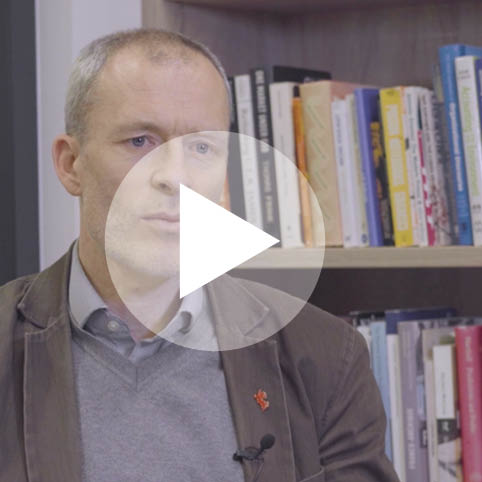Robin Powell
Prof Crawford Spence – King’s College London
RP: The evidence shows us, overwhelmingly, that the vast majority of active fund managers underperform equivalent passive funds in the long run.
So, what do active fund managers really think about passive investing?
Well, researchers interviewed 70 people involved in active fund management in London, New York and Chicago – and they received some very surprising answers.
CS: We never went there to ask them about passive investing, but they kept talking about it. So they obviously had this on their minds; they obviously had a certain degree of anxiety about it. And what they kept telling us about passive investing was that it’s growing, and it’s disrupting their market share, passive is eating their lunch, more and more funds are going over to passive and away from their space, the active management community. So, as a result, we decided to start looking into this in more detail. So we started to ask them more questions about passive investing, and why it was such a big deal, how it was changing the way in which they operated, whether they thought they even had a future in the active fund management space, and what the merits or disadvantages were of – say – a passive investing approach versus an active investing approach and vice versa.
RP: Researchers always take notice when people want to talk about something they haven’t actually been asked about.
What exactly was it, then, that the fund managers said regarding passive investing that so surprised them?
CS: The thing that surprised us the most was that there were so many active managers that saw the benefits of passive investing, to the point where some of them even said to us, “All of my own money is in index funds,” – index funds being the main type of passive investing vehicle. Or other people said to us: “I would not invest in my own fund,” which, really, is quite remarkable given that their livings, their livelihoods, are based entirely upon active fund management, which takes a very radically different approach to passive investing.
RP: Despite their reservations about the value of using active funds, the people the researchers spoke to were still very defensive about them.
Active management, says Professor Spence, bears all the hallmarks of a community under threat.
CS: So in the paper, we use the phrase “epistemic opportunism”, which is a fancy way of saying that the people we interviewed used kind of convoluted arguments to justify that their way of approaching the market – of understanding the market, and acting upon the market, and ultimately investing in the market – was the right way.
When communities are under threat, they tend to do various things. They tend to sort of hunker down and defend their own identity, and we saw this in the people we interviewed, who kept saying, “I can compete with supercomputers,” or, “I can do fundamental analysis and speak to someone on a barge in New Iberia,” or “I can interpret the body language of a chief executive in a way that a passive fund cannot.” So that’s really reinforcing their own identity. Another thing that communities will do when they’re under threat is to delegitimise their opponents – basically, throw stones at your competitors – and they did this a lot by accusing passive investing of being responsible for all sorts of wonky price movements in the economy.
RP: The findings produced by Professor Spence and his colleagues are extraordinary.
In public, fund managers say that active management is the way to go. In private, many concede that passive investing is superior, and some even invest their own money that way.
If that’s what active managers REALLY think, do you honestly want to invest in actively managed funds?

